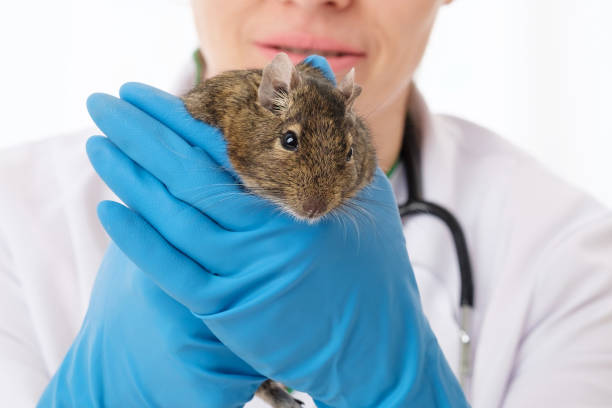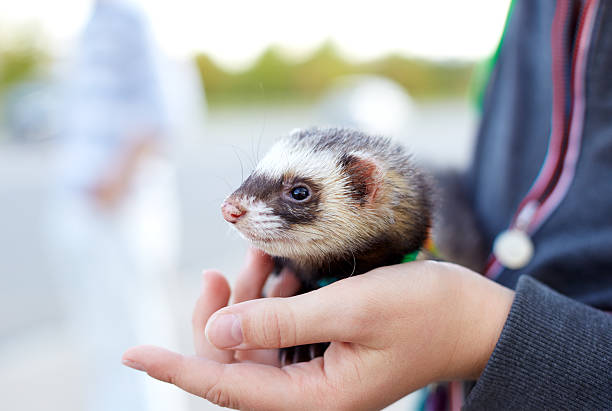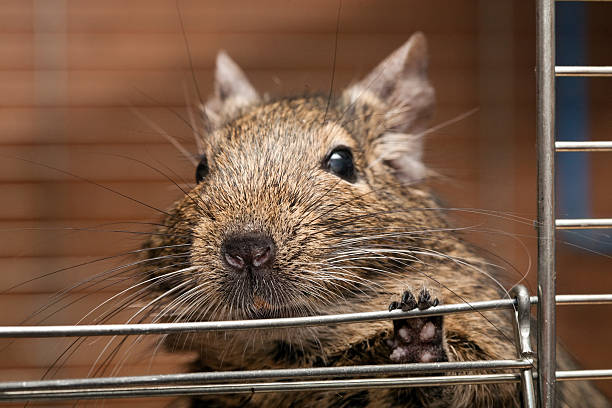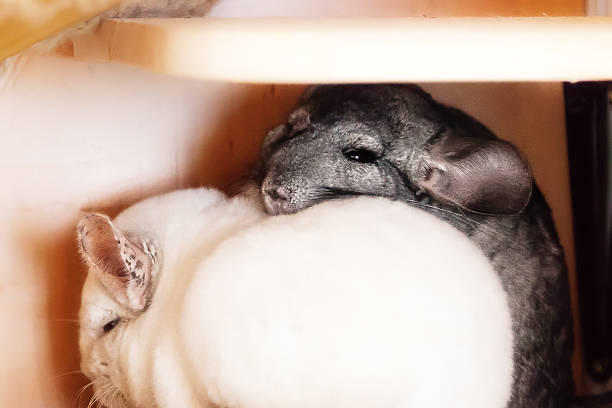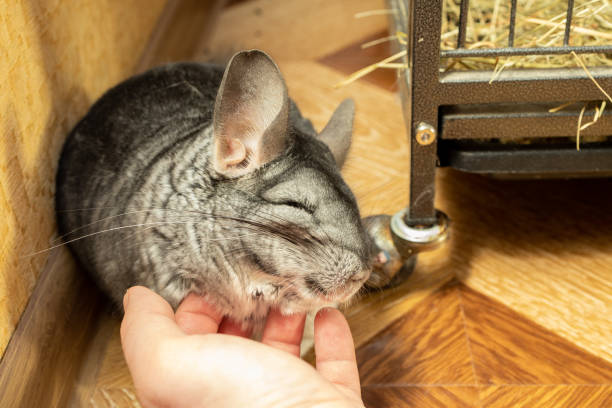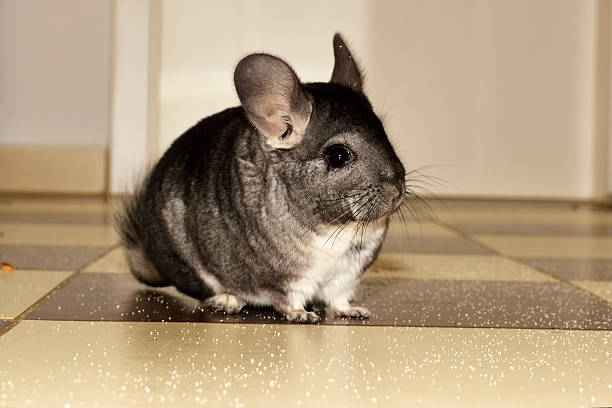Do Chinchillas Carry Diseases? (Here’s What You Really Need to Know)
This post contains affiliate links. This means I will make a commission at no extra cost to you should you click through and make a purchase. Read the full disclosure here.When you’re thinking about bringing a chinchilla into your home—or already have one—it’s natural to wonder: Can they make me or my family sick? After all, no one wants unexpected health risks hiding behind all that fluff.
The good news? Chinchillas are among the cleanest, lowest-risk pets you can own when it comes to disease. But like all animals, they can carry certain illnesses—especially if hygiene, diet, or housing is neglected.
In this step-by-step guide, we’ll walk through which diseases chinchillas may carry, how those risks apply to humans (and other pets), and exactly how to keep your home safe, clean, and worry-free.
Step-by-Step Guide: Understanding Disease Risks in Chinchillas
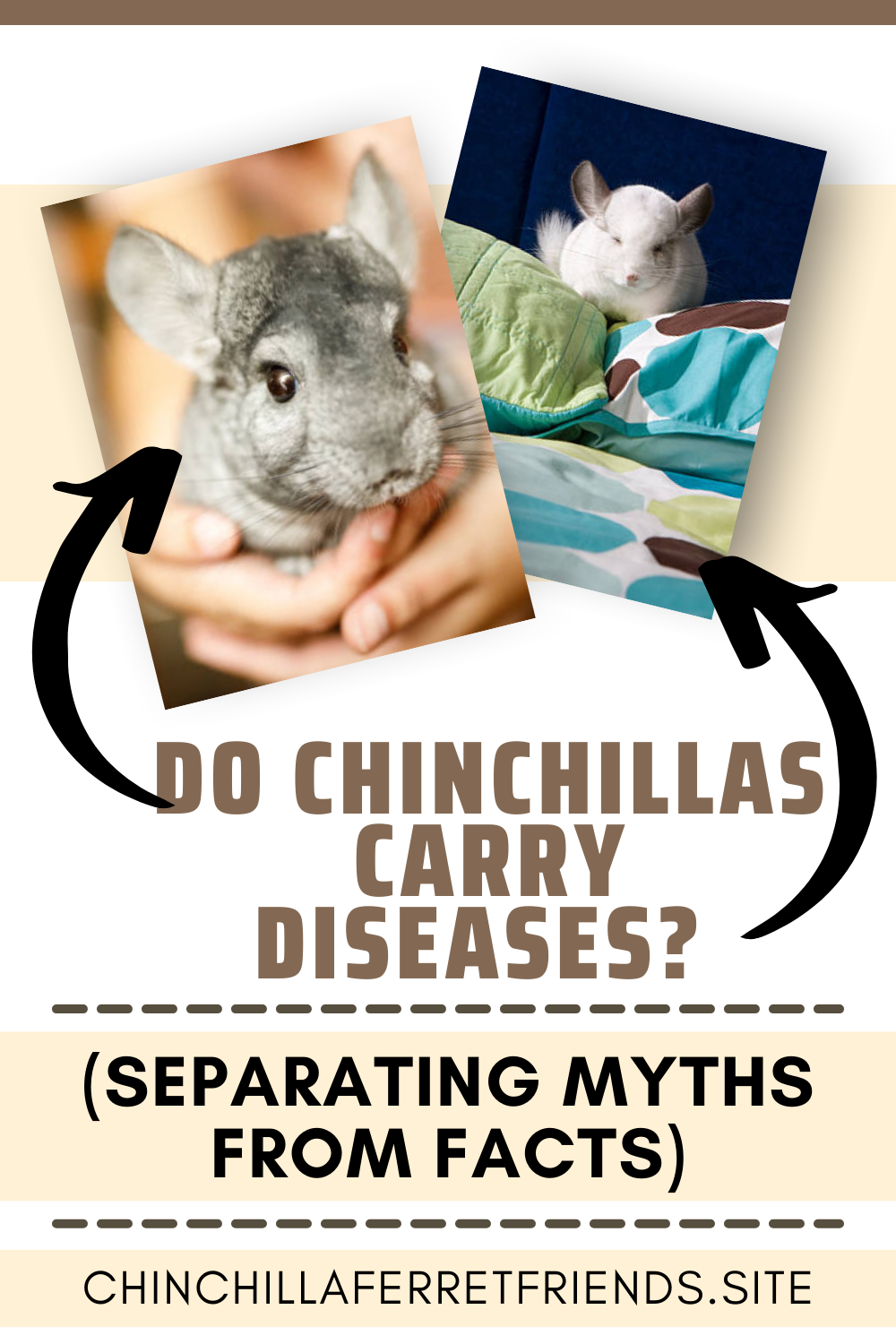
Step 1: Are Chinchillas High-Risk Pets for Disease?
Nope. In fact, chinchillas are:
- Extremely clean by nature (they self-bathe in dust)
- Herbivores (which reduces disease risk from parasites and bacteria)
- Not known for biting or scratching humans
- Less likely to spread zoonotic diseases than dogs, cats, or reptiles
That said, no animal is completely disease-free, so awareness and hygiene matter.
Step 2: What Diseases Can Chinchillas Carry?
While rare, chinchillas can potentially carry or contract:
🦠 Ringworm
- A fungal infection that’s zoonotic (can spread to humans)
- Appears as flaky, bald patches on their fur
- Spreads through contact with infected fur, bedding, or surfaces
🦠 Salmonella (extremely rare in chinchillas)
- Bacteria that causes diarrhea and stomach upset in humans
- Spread through feces or contaminated water/food
🦠 Yersinia pseudotuberculosis (very rare)
- A bacterial infection that can cause fever and inflammation
- More common in wild-caught or poorly bred chinchillas
🦠 Respiratory Infections
- Can’t usually be transmitted to humans, but chinchillas are very susceptible to catching one from us
- Avoid handling them if you’re sick with a cold or flu
🦠 Parasites (like mites or fleas)
- Rare in well-cared-for pets
- Often come from unsanitary environments, wild animals, or poor breeding facilities
Step 3: Can Chinchillas Make Humans Sick?
Technically yes—but it’s incredibly rare.
The most likely (but still uncommon) risks include:
- Ringworm from direct contact
- Bacterial infections from poor hygiene or contaminated materials
- Allergic reactions to chinchilla dust or fur (not a disease, but worth noting)
In most cases, good hygiene and responsible pet care eliminate these risks completely.
Step 4: How to Keep Yourself (and Your Chinchilla) Safe
Here’s how to minimize any risk:
✅ Wash your hands before and after handling your chin
✅ Clean their cage weekly and spot-clean daily
✅ Use gloves if treating a sick or infected chin
✅ Avoid kissing or letting them near your mouth/face
✅ Quarantine new chinchillas before introducing them to others
✅ Buy from responsible breeders or rescues—never wild-caught
If anyone in your household is immunocompromised (young children, elderly, or those with immune conditions), consult a vet first—just to be safe.
Step 5: Can Chinchillas Catch Diseases from Humans or Other Pets?
Yes—and this is often overlooked!
- Chinchillas can catch respiratory infections from humans. If you’re sick, avoid close contact.
- They can’t live with dogs, cats, or ferrets, who may carry harmful bacteria or act aggressively.
- Keep them away from rodents like hamsters or guinea pigs—each species has unique health profiles and should not share enclosures.
Rule of thumb: Chinchillas do best in calm, species-specific environments.
Step 6: Signs Your Chinchilla Might Be Sick
Monitor for these red flags:
- Loss of appetite or water intake
- Unusual lethargy or hiding
- Diarrhea or irregular poop
- Bald patches or excessive scratching
- Noisy breathing, sneezing, or nasal discharge
If you notice any of the above, schedule a vet visit right away—especially with an exotic vet familiar with chinchillas.
Step 7: Routine Care Is Your Best Defense
Healthy chinchillas don’t get sick often, but their systems are sensitive. Maintain a disease-free environment by:
- Providing a balanced, high-fiber diet
- Offering dust baths 3–4 times a week for skin and fur health
- Cleaning all dishes, bottles, and cages with pet-safe disinfectants
- Keeping their cage in a quiet, well-ventilated room
- Avoiding sudden temperature changes or humidity spikes
💡 Tip: Schedule annual wellness checks with an exotic vet—even if everything seems fine.
Final Thoughts
Chinchillas aren’t dangerous disease carriers—but they’re not totally immune to illness either. With proper care, hygiene, and attention to signs of trouble, your chinchilla will remain a safe, clean, and healthy companion.
So go ahead—snuggle that fluffball (just maybe not with the flu). As long as you follow good practices, you have nothing to fear—and everything to love.





